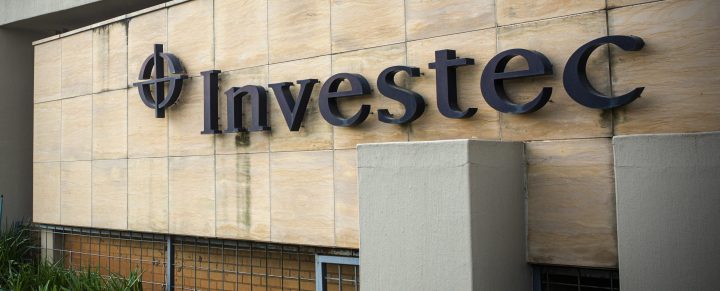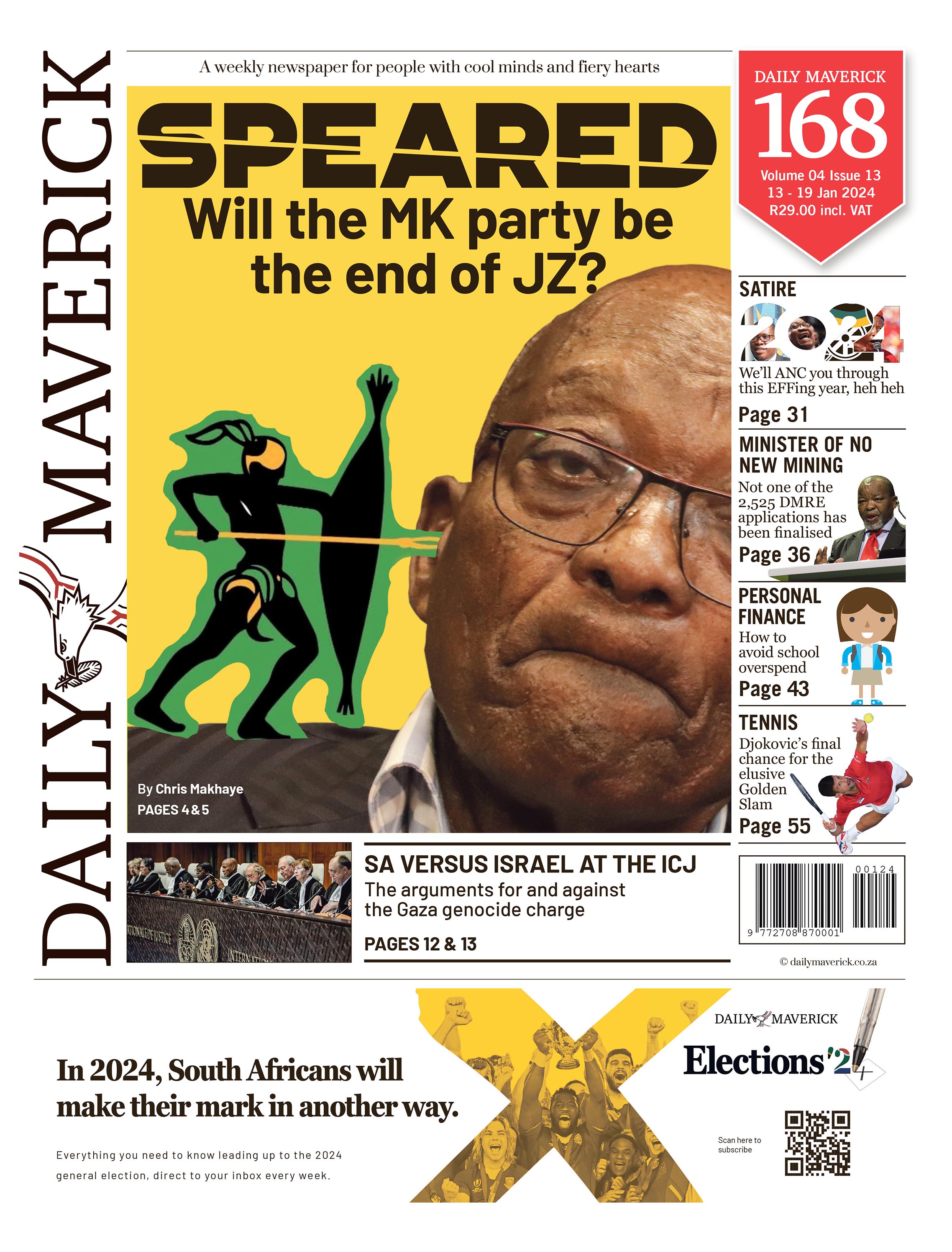RIGGING PROBE
Investec fights on against Competition Commission’s rand-fixing case

The regulator is bruised and has a bloody nose after its case against commercial banks received a sound beating in court this week.
The Competition Commission’s fight against commercial banks accused of manipulating the South African rand-US dollar exchange rate is set to intensify – despite the regulator’s long-running case having suffered a massive blow.
A court dismissed charges last week against 23 of 28 banks that had been charged. Investec is one of the five banks that will remain on the charge sheet when the merits of the case are finally heard in court. The action was first launched in 2017.
Investec has vowed to defend itself when the trial begins, and a spokesperson insisted that the bank’s currency traders did not participate in a coordinated scheme to manipulate the dollar-rand pairing more than a decade ago.
This suggests the commission will face another battle to prove its case against Investec and have the bank prosecuted.
The commission goes into the fight already badly bruised.
The Competition Appeal Court poked holes in the commission’s case and dismissed charges against 23 banks that had been accused of entering into a “single overarching conspiracy” to fix the rand-dollar exchange rate from 2007 to 2013.
Read more in Daily Maverick: Competition Commission’s currency rigging case against most commercial banks collapses
The court found that the commission failed to support its case with evidence to prove that most of the banks conspired to manipulate the rand and, in doing so, caused harm to South Africa’s economy.
The court dismissed charges against banks, including Nedbank, FirstRand, Credit Suisse Group, Bank of America, Australia and New Zealand Banking, Commerzbank, Nomura, HSBC Bank USA, Macquarie Bank and Standard Americas.
The court said five banks – BNP Paribas, JPMorgan, HSBC, Credit Suisse Securities and Investec – still have a case to answer. Apart from Investec, these banks have already pleaded guilty to charges brought by the US Department of Justice in 2015.
HSBC and JPMorgan refused to comment to Daily Maverick about whether they planned to challenge their retention in the South African Competition Commission’s case or whether they were prepared to enter into a settlement agreement with the regulator to put the case behind them.
UK-headquartered Standard Chartered recently agreed to pay an administrative penalty of R42.7-million. Citibank paid an administrative penalty of R69.5-million in March 2017, and Barclays plc, Barclays Capital, and Absa are cooperating with the commission to be granted leniency.
Attempts to obtain comment from BNP Paribas and Credit Suisse Securities failed.
The dismissal of the commission’s case against most of the banks will raise questions about the regulator’s ability to prosecute high-profile cartel cases or white-collar crimes. Its credibility is on the line and the commission may appeal against the court ruling at the Constitutional Court. The commission said in a statement it was still studying the Competition Appeal Court judgment and would communicate its next course of action in due course.
Picture of rookie errors and bungling
The 79-page judgment – penned by judges Dennis Davis, Lister Nuku and Vusi Nkosi – is scathing of the commission’s conduct in assembling its case against the banks. The judgment paints a picture of commission investigators making rookie errors and bungling the case.
The commission incorrectly linked currency traders to banks they did not work for. For example, it insisted that Jason Katz and Louis Friedman worked for Standard New York Securities as currency traders even though the company had tried to correct the regulator, informing it that the pair worked for Standard Americas.
The judges said FirstRand should not have been on the list of charged banks because, by its own admission, the commission accepted “it does not even know who the FirstRand Bank’s traders were and has no evidence that they had participated” in a scheme to manipulate the rand.
FirstRand corrected the commission about the mistakes in its case but the regulator continued to pursue it based on “hopelessly incorrect information”, which the court found to be “regrettable”.
Read more in Daily Maverick: Surprise! South African banks are not colluding to destroy the country
On the commission’s charges against Commerzbank, the court found that the regulator should have pleaded “with sufficient factual particularity”. Its case against Standard Bank “did not get out of the legal starting blocks”, because the bank’s salesperson whom the commission implicated in wrongdoing did not even have the authority to execute currency trades.
The commission also implicated in wrongdoing holding or parent companies of commercial banks.
The court ruled: “A holding company, which is not registered as a bank, is not authorised to trade in foreign currency and whose role is simply shown to be that one of the subsidiaries traded in foreign currency, cannot on this alone be included in the referral affidavit [the commission’s court documents detailing its case].”
The commission’s central argument is that currency traders at the 28 local and international banks entered into a general agreement or “single overarching conspiracy” to collude on prices for bids, offers and bid-offer spreads for spot trades in relation to currency trading. In doing so, they allegedly used platforms such as the Reuters currency trading platform and the Bloomberg instant messaging system (chat room), as well as telephone conversations and meetings, to coordinate their alleged collusive trading activities.
Insufficient evidence
However, the court ruled that there was insufficient evidence proffered by the commission that joining the messaging systems or being part of them would automatically constitute traders partaking in a “single overarching conspiracy” to rig currency trades. The Reuters and Bloomberg information and messaging platforms, which the commission relied on for its case, were primarily platforms for news and not where trades were executed.
The commission also failed to demonstrate that the alleged actions of currency traders harmed South Africa’s economy. It is hard for a few currency traders to cause big shifts in exchange rate movements against the US dollar.
Currency trading (beyond trades in the dollar-rand exchange rate) is a large market – with more than $6-trillion traded daily, making it almost impossible to cause big rate shifts, even with a coordinated strategy to rig currency markets by traders.
$50-billion in trades every day
The rand-dollar currency pair, specifically, trades about $50-billion every day and the actions of a few currency traders are unlikely to lead to large or long-term shifts in the rand’s value, the banks have successfully argued.
South Africa-based banks, including Standard Bank, FirstRand and Nedbank, have welcomed the judgment by the Competition Appeal Court, saying it confirms the findings of internal investigations that cleared them of any wrongdoing.
For now, Investec is the only South Africa-based bank that still faces charges after it did not join the other banks when they approached the appeal court to challenge the case going to trial – on the basis that it was flawed and lacked direct evidence. An Investec spokesperson told Daily Maverick the bank “remains ready and willing to present its case” when the merits of the case are heard through a trial. DM
This story first appeared in our weekly Daily Maverick 168 newspaper, which is available countrywide for R29.

















 Become an Insider
Become an Insider
There are few things that are worse for a country than to have its banking system undermined in the eyes of local and foreign investors, depositors, etc. To collapse the banking system is to collapse the country.
Of all the depredations visted on the economy by the ANC this action by the clearly dysfunctional Competition mob is probably the most egregious.
Heads need to roll.